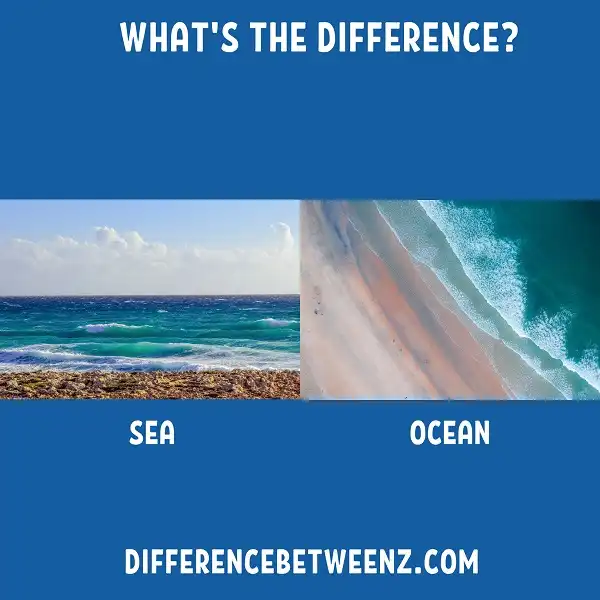Sea vs. Ocean
What is Difference between Sea and Ocean? The indiscriminate use of the terms “sea” and “ocean” is something that occurs very frequently in different contexts, including the academic one. Given the relationship between these two bodies of water, a large number of people believe that there is no difference between them; but the truth is that these are different things.
If you also have doubts about it, continue reading, because then we explain to you what is the difference between ocean and sea.
Difference between Sea and Ocean
Ocean
The oceans are large masses of saline water that make up a large part of the planet’s hydrosphere (although oceans have been discovered on other planets).
For many years there were only four known oceans, but in 2000 the International Hydrographic Organization added the Southern Ocean (also known as the Antarctic) to the list. The five oceans recorded so far are the Pacific, Atlantic, Indian, Antarctic and Arctic .
Approximately 72% of the Earth is covered by water and although there are several oceans, they all form a body of interconnected salt water. The oceans contain approximately 230,000 forms of marine life. The depth of these oscillates between 13,000 and 35,000 feet.
Oceanographers divide the oceans depending on the zones and the physical and biological conditions present in them. They differentiate them based on depth, light and other factors.
Sea
A sea is a large body of salt water that may or may not connect to an ocean, although it commonly connects. It’s smaller compared to an ocean and shallower. It is believed to lack a natural outlet and is generally found near land. In many cases it connects the earth with an ocean the seas have waves that are not visible in the oceans. Among the best known include: the Mediterranean, Baltic, Bering Sea, Caribbean, Coral, Red and Black Sea.


